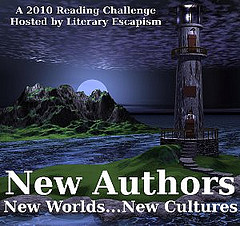
Marlantes goes back in forth in time and purpose, but the key is to follow the chapter headings, like “Guilt,” to understand what the focus of the chapter will be no matter what time period in his life he is speaking of. He’s clearly studied Carl Jung and other philosophies, including those of eastern nations, on his journey to find out how to best deal with his conflicting emotions of triumph and horror as a Marine who fought in Vietnam, and he often warns that without guidance when soldiers come home, they can spiral out of control as they lose the boundaries between the war life and their normal life.
“Death becomes an abstraction, except for those at the receiving end. We must come to grips with consciously trying to set straight this imbalance of modern warfare. What is at stake is not only the psyche of each young fighter but our humanity.” (page 19)
“To be effective and moral fighters, we must not lose our individuality, our ability to stand alone, and yet, at the same time, we must owe our allegiance not to ourselves alone but to an entity so large as to be incomprehensible, namely humanity or God.” (page 144)
Using examples from his own combat experiences, which are eerily similar to those presented in Matterhorn‘s fictional account, Marlantes outlines possible differences in loyalty and how high that loyalty must be in order for “right” decisions to be made in war, but he also acknowledges that all humans lie and that lying can serve many purposes, especially in a war that applauds achievement only through body counts. The dichotomy of humans is pronounced in war as they attempt to navigate through the jungle or the foreign terrain to complete missions without laying unnecessary waste to themselves or the enemy. Ethical warriors are just one part of the discussion, but mostly Marlantes is concerned with preparing today’s soldiers for the psychic and emotional break they will experience with their spirituality and their ties to society.
Mixed with philosophical discussions and examples from such texts as The Odyssey and the Bhagavad Gita, Marlantes strives to pinpoint the natural inclination of the warrior spirit in men and women and the dire consequences of suppressing that spirit or denying its existence. While he suggests that the spirit should be tempered and praised, it also should not be allowed to spiral out of control — with a focus on creating balance. In many ways, there is a deep Buddhist sense in his memoir about creating balance and eliminating ego’s perspective on justice in favor of what is truly right for humanity not just a particular nation or belief system.
What It Is Like to Go to War by Karl Marlantes is one man’s perspective on his experiences in Vietnam and what those experiences taught him. He talks about what he thinks could improve soldiers in the field as well as when the fighting is over, helping them to integrate back into society with less bumps along the way — less suicides, less drug and alcohol abuse, and less violence. For those looking for a memoir that offers more than just war stories about missions and lost friends, Marlantes provides an introspective analysis of the pride he felt in killing the enemy as well as the deep sorrow.
About the Author:
A graduate of Yale University and a Rhodes Scholar at Oxford University, Karl Marlantes served as a Marine in Vietnam, where he was awarded the Navy Cross, the Bronze Star, two Navy Commendation Medals for valor, two Purple Hearts, and ten air medals. His debut novel, Matterhorn, will be published in April 2010 by Grove/Atlantic.





 Last month, we
Last month, we 


